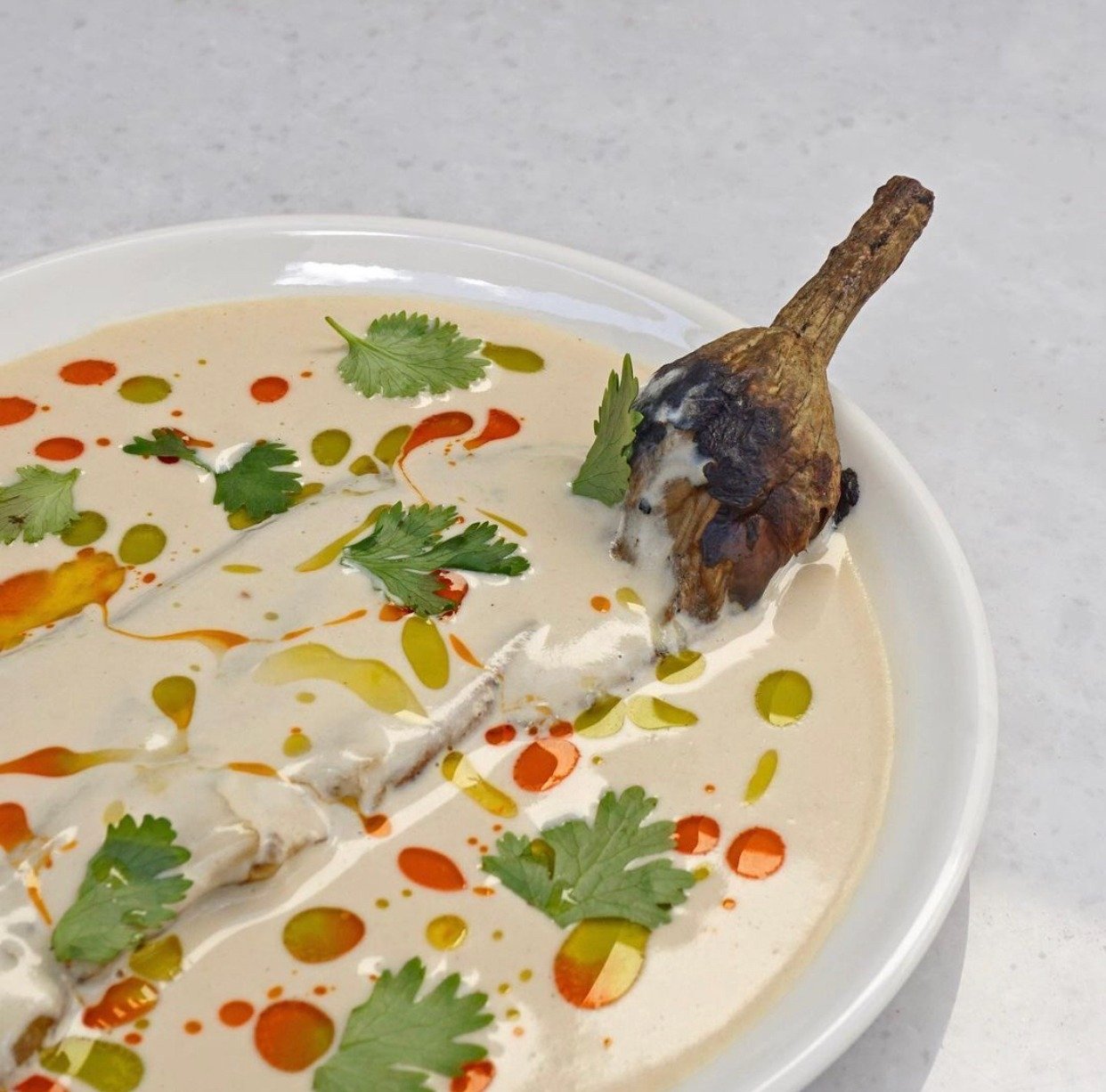© Turkuvaz Haberleşme ve Yayıncılık 2024
In the middle of the pandemic, the titanic feat of opening a restaurant in a bustling, popular city like Istanbul might be aptly compared to the Greek myth of Atlas, a figure who was famously condemned to hold up the sky for eternity. In the classical work by Hesiod, entitled, "Theogony," written in the eighth century B.C., the genealogy of the ancient Greek deities includes a tract on Atlas, born "stout-hearted," Ocean’s grandson, made to stand forever at the very westernmost extremity of Earth in order to suffer his timeless, lofty order of damnation.
That sense of direction is part of the legendary folklore behind the string of mountains in North Africa ostensibly named after him, the Atlas Mountains, which stretch from Morocco to Tunisia through Algeria. Others say the range was named after the Berber word for "mountain," which can be transliterated as "adras." These are the kinds of stories that would be appropriate to tell while tasting the appetizing menu at Atlas in Kadıköy, where a particularly tantalizing recipe for fried, sun-dried eggplant with a Maghrebi, or North African "chermoula" sauce.
The Arabic word for "west" is also a homonym for "strange," which runs parallel with its loan into Turkish, pronounced, "garip." That root forms the basis for the geographical indicator, "Maghreb," which was generally known as the west throughout much of Arabic history, with its major centers in places like Baghdad, Mecca and Cairo. The overlap of cultures, especially that of Turkish and Arabic, is as immediate as it is warming as the flavorfully rich chermoula sauce, a forest green marinade relish typical in every North African country except for Egypt.
To first dry eggplants under the sun enhances their earthy textures and tones with a satisfying stretch of the culinary imagination before sauteing them to perfection, doused in a generous lathering of chermoula, the effect is transporting, from the tongue to the heavens. And as a beginning plate, it is favorable to mix tastes, such as with their delectably subtle roasted beetroot dish, served at room temperature over a marsh of strained yogurt and dill, with lemon peel, hazelnut and mint oil rounding out its singular palate.
Atlas is like the epigraph in Quentin Tarantino’s film, "Kill Bill": a revenge best served cold. It is a summery affair, a restaurant perfect for balmy days under the blaze of the sun when it rages after swimmers and sightseers. The building in which it is situated is unique in its architecture for the neighborhood, with a sturdy bulbous exterior of round, stone shapes, almost like a glorified cavern that stays cool for hungry and festive footsore wanderers and urban explorers to chance upon some nourishing delights, whether planned or impromptu.
But in the cold of midwinter, as snow lights on the glowing yellow sky of Istanbul caught between two seas, two continents and countless cultures, their herbal teas are the right remedies. That said, their house fare, while best fit for a hot day, remains practically irresistible. Even as cold drafts blow in, their spicy hibiscus chili mocktail goes nicely with their watermelon radish, red apple salad, which brings out the German turnip "kohlrabi," flecked with flax seeds in a chilled Dijon mustard vinaigrette.

With vegan soup served all day against a course of carnivorous charms encompassing everything from hot fried chicken wings to lamb tirit and beef tongue, there is something for everyone no matter the preference. And even though Atlas may seem to be paradise for a roving health nut, it does not skimp on the elements of savory, cooking Western favorites like french fries that go with their perfect falafel recipe, either sandwiched in a thick pita or as a plate hovering over a smear of hummus with cucumber and seasonal herbs.
And with their round of fresh mocktails and homemade drinks, whether infused with beet and sumac or lemon and juniper, their fancy trove of desserts await. The chocolate cake is fittingly titled, "nemesis," for it is bound to be the death of anyone who might try to resist, flourless and spiked with sliced almonds. Their chocolate cookie is made with tahini and their "mahalabia" pudding with cardamom and dried rose leaves, their sweet pumpkin is topped with walnuts and again, tahini, an everyday, regional ingredient made with ground sesame.
To the North African, and Eastern Mediterranean kitchen, tahini is about as common as it is extraordinary, kind of like life on a rock in space, deceptively simply, until, when enjoying a good meal, time stops, and all comes to a strange, and transcendent focus, contemplating the mythical mysteries of the upraised skies. It is possible while eating Atlas’s cauliflower drenched in their house tahini sauce, amplified by coriander, pomegranate, parsley and red pepper oil or the classic hummus with Turkey’s chickpeas from Ovacık, Fethiye on the Aegean coast, or their special tahini from the heartland Anatolian town of Bozkır, near Konya.
